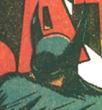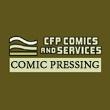[PSA] Restored books in Blues6302
 COLLECTOR COLLECTOR
|
shrewbeer private msg quote post Address this user | |
| Many amateur pressers are now using a cleaning technique involving a certain chemical wash (which we will NOT go into here) with a distilled water rinse to clean comic covers. It removes water stains, dust shadows, and tanning (even ink in some cases). Using this certain chemical, most all books are getting blue labels from both CGC and CBCS. I personally know of thousands of books in blue labels that have had this treatment. I can see why it is catching on (because it’s so effective), but I do not agree that it should be done. I run an amateur pressing group online (there’s about 600 of us), and every time I see someone talking about it I call them out; they tend to hightail it and run, deleting all their own posts (obviously they know they are doing something wrong). Because of the blue label return, it is becoming more and more popular; it seems like every week now I see another presser doing it. It is restoration, by the CGC definition. How do you feel about this? Because of its undetectability by leaving no residue behind, should it become excepted practice? If you don’t already have one in your collection, chances are growing every day that you will be buying one in the future without knowing it. PS Please do not attempt to discuss the technique, the chemicals, or anything relevant to the “how to”. I do not want this thread blown up. |
||
| Post 1 • IP flag post | ||
 Collector Collector
|
Wraith private msg quote post Address this user | |
| Imo of its not adding or altering and just taking away foreign substance its OK by me . If page has been recoloured, glued etc etc that's a restore | ||
| Post 2 • IP flag post | ||
 Collector Collector
|
TimBildhauser private msg quote post Address this user | |
| @shrewbeer 1) CBCS doesn't have a different color label for restored books. Everything is blue, yellow (ASP) or red (VSP). 2) Nothing is 100% undetectable. You should call the office and talk to West & Borock about it. Any chemical leaves behind at least some level of residue that can be detected as long as you know what it is. It's just a matter of knowing what to look for and developing a system to test for it. |
||
| Post 3 • IP flag post | ||
 Collector Collector
|
Marximus private msg quote post Address this user | |
| "CGC defines restoration as treatments intended to return the comic book to a known or assumed state through the addition of non-original material." If the chemical is being rinsed away with distilled water, what exactly is being added? |
||
| Post 4 • IP flag post | ||
 Collector Collector
|
Mugroantics private msg quote post Address this user | |
| Doesn’t bother me. As long as no color was added or adhesive attached etc., kudos to this method that cleans up these books. | ||
| Post 5 • IP flag post | ||
 Collector Collector
|
ONLINE_209 private msg quote post Address this user | |
| I wonder if overtime that so-called cleaning solution will deteriorate the book itself | ||
| Post 6 • IP flag post | ||
 Collector Collector
|
rickdod3 private msg quote post Address this user | |
| Doesn't bother me. As long as something isnt being added or trimmed away from the original book I don't consider it to be restored. This is simply cleaning the paper. | ||
| Post 7 • IP flag post | ||
|
|
MarcJ private msg quote post Address this user | |
| For me, as long as the chemical won't eventually harm the book due to the rinse not really removing it completely, I'm OK with it. It is a cleaning method and not a restoration. | ||
| Post 8 • IP flag post | ||
 Collector Collector
|
doog private msg quote post Address this user | |
| It sounds like it leaves a better book, so fine by me. | ||
| Post 9 • IP flag post | ||
 Collector Collector
|
poka private msg quote post Address this user | |
| It takes away the charms of an old book! | ||
| Post 10 • IP flag post | ||
 Collector Collector
|
ONLINE_209 private msg quote post Address this user | |
| I guess only time will tell the end results and whether the cleaning process destroys the book or not | ||
| Post 11 • IP flag post | ||
 COLLECTOR COLLECTOR
|
shrewbeer private msg quote post Address this user | |
Quote:Originally Posted by TimBildhauser I understand that. By “Blue”, I mean no restored label or designation of cleaned cover. Seems many are ok with it, which is a bit surprising. |
||
| Post 12 • IP flag post | ||
 Collector Collector
|
doog private msg quote post Address this user | |
| Pressing, humidifying, roll removal, erasing, staple replacement and lots more have been part of the game in the few years since I have been involved. The ingenuity of my fellow man has no bounds. You can’t expect grading companies or collectors to find the undetectable, so it has to be accepted. | ||
| Post 13 • IP flag post | ||
 Captain Corrector Captain Corrector
|
CaptainCanuck private msg quote post Address this user | |
| @doog Quote: Originally Posted by doog @TimBildhauser Quote: Originally Posted by TimBildhauser This could of get messy once the grading companies are able to detect it. |
||
| Post 14 • IP flag post | ||
 COLLECTOR COLLECTOR
|
shrewbeer private msg quote post Address this user | |
Quote:Originally Posted by Marximus I agree with this definition. However if you read the rest of their definition it specifically calls out “aqueous cleaning”, which seems to be the only exception to the “addition” definition. |
||
| Post 15 • IP flag post | ||
 Collector Collector
|
TimBildhauser private msg quote post Address this user | |
Quote:Originally Posted by CaptainCanuckYou mean like micro-trimming? |
||
| Post 16 • IP flag post | ||
 I bought a meat grinder on amazon for $60 and it's changed my life. I bought a meat grinder on amazon for $60 and it's changed my life.
|
kaptainmyke private msg quote post Address this user | |
| I do not agree with the technique mentioned in this topic. Long term exposure is yet to be determined. Thank you. | ||
| Post 17 • IP flag post | ||
 Collector Collector
|
Marximus private msg quote post Address this user | |
Quote:Originally Posted by shrewbeer I hear you. Here it is from their website: CLEANED (lightened). An aqueous process to lighten the paper color or remove soluble acids, often using chemical oxidation, solvents, or water. This process is sometimes called cleaned and pressed or C&P. Common chemicals used to lighten paper include benzene, acetone, xylene, sodium hypochlorite, hydrogen peroxide, chloramine-T, chlorine dioxide, sodium borohydrate, etc. They specifically are referring to lightening the paper color, or removing acids. From my point of view, they are referring to the interior pages, not the cover. Who wants to lighten the cover? But, it would be cool if the grading companies would issue an official stance on the matter. I hear folks here recommending C&P all the time. If it was considered 'restoration', I think most would shy away from the "C" aspect. Gray areas. |
||
| Post 18 • IP flag post | ||
 I bought a meat grinder on amazon for $60 and it's changed my life. I bought a meat grinder on amazon for $60 and it's changed my life.
|
kaptainmyke private msg quote post Address this user | |
| what website is that cited from | ||
| Post 19 • IP flag post | ||
 Collector Collector
|
Marximus private msg quote post Address this user | |
Quote:Originally Posted by kaptainmyke CGC's website. |
||
| Post 20 • IP flag post | ||
 Collector Collector
|
D84 private msg quote post Address this user | |
| Hate it or not, I've come to accept that any book I buy is altered in some way or form, being pressed, cleaned, etc. The only exception would be if I bought it straight out the box from diamond. |
||
| Post 21 • IP flag post | ||
 Why just the women? I like bears. Why just the women? I like bears.
|
Gaard private msg quote post Address this user | |
Quote:Originally Posted by poka I don't really have an opinion one way or the other (iow - it doesn't bother me), but are you saying you'd rather have an 'old book' look worse? (not really sure what you mean by "charms" |
||
| Post 22 • IP flag post | ||
 Collector Collector
|
TimBildhauser private msg quote post Address this user | |
Quote:Originally Posted by D84Nah... even straight out of the box from Diamond they're altered. They used to be trees. |
||
| Post 23 • IP flag post | ||
 COLLECTOR COLLECTOR
|
shrewbeer private msg quote post Address this user | |
Quote:Originally Posted by Marximus On a tanned cover, whitening can make it look much whiter. Sun shadows, dust shadows, etc. A slightly faded out cover that is nice and white looks better than bright colors with nasty tan dust shadows and off-white color. You won’t get much of a grading hit for slight fading versus shadows as well |
||
| Post 24 • IP flag post | ||
 COLLECTOR COLLECTOR
|
shrewbeer private msg quote post Address this user | |
Quote:Originally Posted by Marximus You are confusing the restoration term with dry cleaning and pressing (which is extremely common nowadays, but is strictly dry clean) |
||
| Post 25 • IP flag post | ||
 CBCS broke up with me over Facebook. CBCS broke up with me over Facebook.
|
CFP_Comics private msg quote post Address this user | |
| Technically it should be considered conservation. If a buck can be made off of it many will do it until caught or it affects their bottom line. Personally this is something I won’t do ( and yes, I know how to do it) even if asked. | ||
| Post 26 • IP flag post | ||
 I bought a meat grinder on amazon for $60 and it's changed my life. I bought a meat grinder on amazon for $60 and it's changed my life.
|
kaptainmyke private msg quote post Address this user | |
| Same. I will not be using this method on my books either. | ||
| Post 27 • IP flag post | ||
 Collector Collector
|
Marximus private msg quote post Address this user | |
| For those of us who are relatively ignorant about the subject, how does this process differ from dry cleaning? Is it just because they use the distilled water as a rinse? Rather than another chemical fluid? |
||
| Post 28 • IP flag post | ||
 COLLECTOR COLLECTOR
|
shrewbeer private msg quote post Address this user | |
Quote:Originally Posted by Marximus Dry cleaning is just that- DRY. No fluids. |
||
| Post 29 • IP flag post | ||
 I live in RI and Rhode Islanders eat chili with beans. I live in RI and Rhode Islanders eat chili with beans.
|
esaravo private msg quote post Address this user | |
| @Marximus - Dry cleaning, by definition, doesn’t include the use of liquids. Basically, dirt and grime are erased or rubbed off. What is being discussed is cleaning with a water-based solvent followed by a water rinse to remove traces of the solvent. So you cover your tracks. |
||
| Post 30 • IP flag post | ||
Thread locked. No more posts permitted. Return home.
